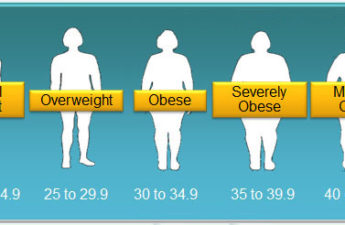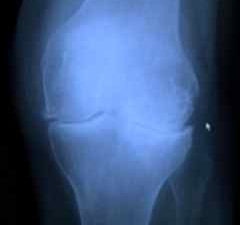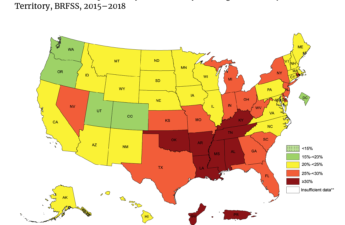Category: Metabolism
Short-term dietary changes can lead to obesity, shows research
Surprisingly, even short-term consumption of highly processed, unhealthy foods can significantly reduce insulin sensitivity in the brains of healthy people. This effect persists even after returning to a normal diet.
Exercise does increase calorie burn – but probably not as much as you might hope
The most rigorous and robust evidence available on the topic actually shows that exercise does increase energy expenditure – though perhaps not as much as we might expect.
Ozempic and similar weight loss drugs may lower risk of 42 health conditions, but also pose risks
Now, research suggests that GLP-1 drugs could help treat dozens of ailments, including cognitive issues and addiction problems. However, it also found previously unidentified risks.
208 million Americans are obese or overweight, study finds
Nearly half of adolescents and three-quarters of adults in the U.S. were classified as being clinically overweight or obese in 2021. The rates have more than doubled compared with 1990.
Without urgent intervention more than 80% of adults and close to 60% of adolescents will be classified as overweight or obese by 2050.
New study suggests weight loss drugs like Ozempic could help with knee pain. Here’s why there may be a link
A study published in the New England Journal of Medicine has suggested semaglutide can improve knee pain in people with obesity and osteoarthritis. So what did this study find, and how could semaglutide and osteoarthritis pain be linked?
Stop asking me if I’ve tried keto: Why weight stigma is more than just being mean to fat people
Fat stigma can take the form of overt discrimination, but it is often insidious, pervasively entrenched into our society and environment.
What is metabolism? A biochemist explains how different people convert energy differently − and why that matters for your health
Simply put, a primary role of metabolism is to convert chemical energy into electrical energy and back into chemical energy. How this energy is transferred throughout the body might play a central role in determining whether you’re sick or healthy.
Drugs like Ozempic won’t ‘cure’ obesity but they might make us more fat-phobic
Ironically, while fat people are told they need to lose weight for their health, they are also shamed for “cheating” or taking shortcuts by using medication.
BMI alone will no longer be treated as the go-to measure for weight management – an UW obesity expert explains
Ultimately, BMI cannot provide doctors with precise information about the portion of body weight composed of body fat, nor can it tell us how that fat is distributed in the body. But this distribution is important because research has shown that fat stored around the internal organs has significantly higher health risks than that distributed in the extremities
Why South Asians are at increased risk for diabetes: A complex interplay of genetics, diet and history
South Asians are particularly insulin resistant. Compared to Caucasians, South Asians had higher insulin concentrations in their blood after ingesting sugar. This means that South Asian individuals require more insulin to regulate their blood sugar levels, a characteristic of Type 2 diabetes. There are numerous possible explanations for this, but genetic variants could be one culprit.
WAISTLINES AND BOTTOM LINES
They say they got canned advice and unresponsive clinicians — and some report they couldn’t get the newest drugs.
Why snacking could be damaging your health
But these days, people are eating more frequently than they ever have before – and often outside of meal times. New smartphone app data shows that we now have erratic eating patterns. Many of us are continually snacking rather than eating at defined times – which means we spend up to 16 hours a day in a “fed” state.
America’s Obesity Epidemic Threatens Effectiveness of Any COVID Vaccine
Vaccines can be less effective in obese adults than in the general population, leaving them more vulnerable to infection and illness.
One in seven Americans physically inactive – CDC
Physical inactivity is defined as not doing in any leisure-time physical activities over the last month – activities such as walking for exercise or gardening.
Your fitness now predicts your risk of obesity later better than your genes
Your body mass index — or BMI — when you’re young does a better job predicting whether you will be obese later in life than your genes.











